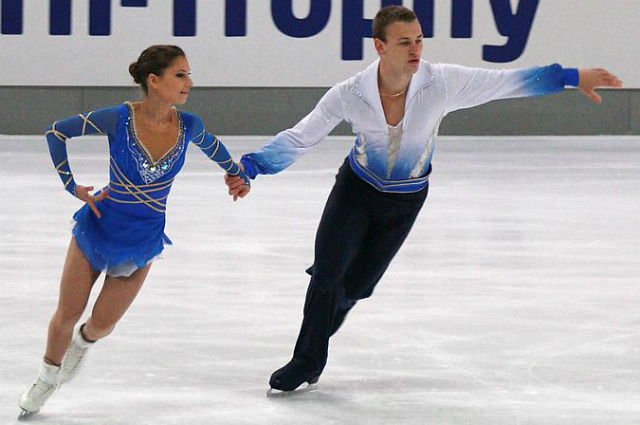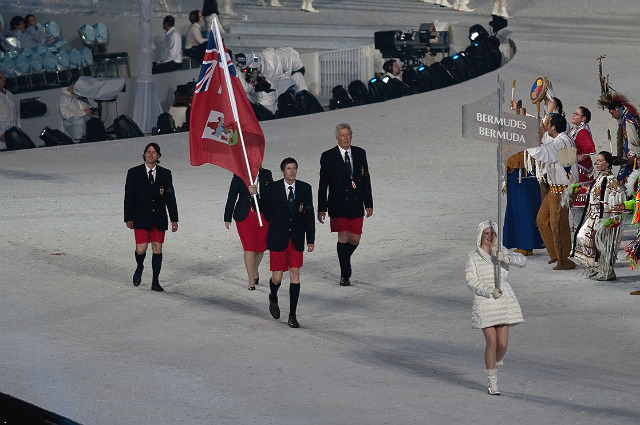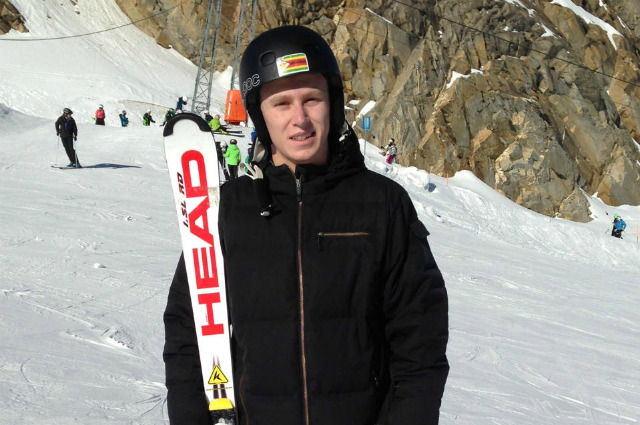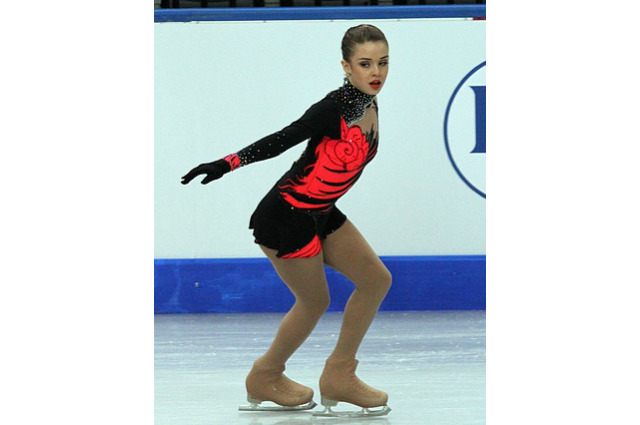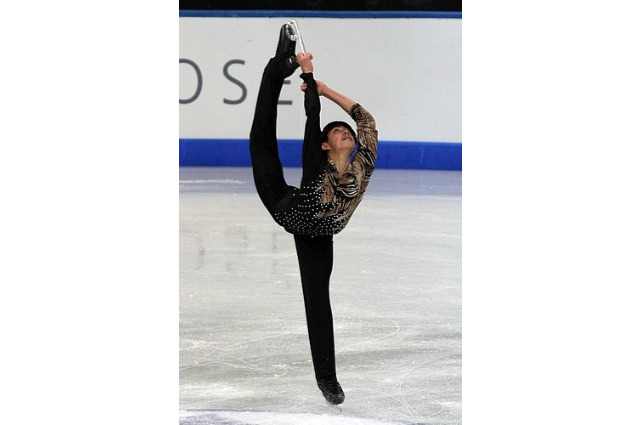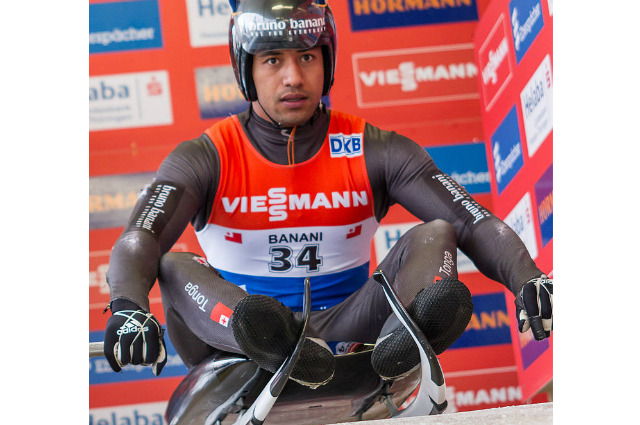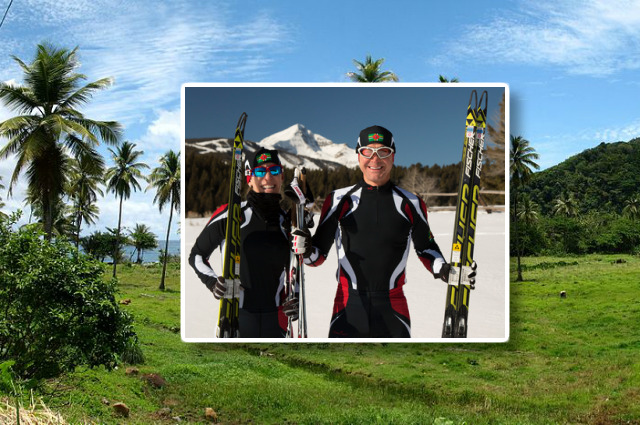13 Unexpected Countries At The Winter Olympics
Although Mexico City hosted the 1968 Summer Olympics, the semi-tropical country has never been known as a player in the Winter Olympics. Mexico sent a team in 1928, but skipped every Winter Games until 1984. Enter the alpine skier Hubertus von Hohenlohe, a German prince and "the most interesting Olympian in the world," who was Mexico's sole representative at the 1984 Sarajevo Olympics. Thirty years later, the 55-year-old von Hohenlohe will be making his sixth appearance in the Winter Olympics—the fourth of which he'll be the only member of the team. Born in Mexico, raised in Spain and schooled in ski-crazy Austria (where he's now based), von Hohenlohe chooses to represent his birth country because, well, he doesn't have much competition: "In life you have a couple of opportunities and openings," he told Time Magazine in 2010. "And one of them was that I was born in Mexico. Sure, I used it to my favor." Look for von Hohenlohe competing in the men's slalom in his flamboyant mariachi-themed uniform.
Jamaica
Perhaps it's not surprising that this Caribbean island nation is sending a two-man bobsled team to Sochi. After all, the unlikely story of the first Jamaican bobsled team did inspire the hit 1993 movie Cool Runnings. But this will mark the first time in 12 years Jamaica will send bobsledders to the Olympics, thanks to the efforts of sled driver Winston Watts. "Winston ... decided about 20 months ago, that it was time for Jamaica to be back in the Winter Olympics and he made it happen almost single-handedly," retired Jamaican bobsledder Devon Harris told the Canadian magazine Share. "[Watts] recruited, raised funds and managed the team. He was like a one-man federation and all the work he did paid off in the end." Watts and brakeman Marvin Dixon will be Jamaica's entire Olympic delegation.
Hong Kong
This tropical, semi-autonomous region of China has fielded teams in the Summer Olympics ever since 1952, but only participated in its first Winter Olympics in 2002, when short track speed skaters Cordia Tsoi and Christy Ren took to the ice in Salt Lake City. In Sochi, Hong Kong's one-person team will consist of another short track speed skater, Pan-To Barton Lui, who once practiced his sport in Hong Kong's air conditioned shopping malls, according to an interview in the Times of India. As Lui's Olympic prospects got more serious he had to leave the country to find a proper place to train, first for Canada and then for South Korea, he told the South China Morning Post.
Israel
Although this small desert country in the Middle East has fielded athletes at every Winter Olympics since 1994, nearly every Winter Olympian who has competed under the Israeli flag either originally hails from somewhere else, or trains abroad—and the five-person 2014 team is no exception. Israel's lone alpine skier, Virgile Vandeput, was born and lives in Belgium (his mother is Israeli); figure skater Alexei Bychenko competed for his country of birth (Ukraine) until 2010; Vermont-born figure skater Andrea Davidovich trains in New Jersey with her pairs partner, Ukraine-born Evgeni Krasnopolski; short track speed skater Vladislav Bykanov was also born in Ukraine and trains in The Netherlands.
Bermuda
Bermuda shorts will be in during the opening ceremony in Sochi. The tiny island nation in the middle of the Atlantic is home to cross-country skier Tucker Murphy, who will be Bermuda's sole representative at the Winter Olympics for the second time in a row. Although Murphy, 32, sailed to school as a child, he has spent much of his life in snowier climes: he learned to ski while attending prep school in New Hampshire, and later studied at Dartmouth and Oxford.
Zimbabwe
This landlocked southern African country will make its Winter Olympic debut in Sochi when its sole athlete, 20-year-old Luke Steyn, will compete in the slalom and giant slalom events. Born in Zimbabwe, Steyn was raised in Europe and his family currently lives in the UK. He is a student at the University of Colorado in Boulder. "Though I have moved from Zimbabwe, I still feel very much connected to it," he told the New York Times. "As they say, it's in your blood, and I hope to live and work in Africa again one day."
Brazil
You might guess that Argentina or Chile is the South American country sending the most athletes to the Sochi Games, but it's tropical Brazil that has that distinction—not that a few of Brazil's 13 athletes don't train in the Andes. And not only do they train there, Brazil's national ski and snowboard championships actually take place in Chile at a resort called Valle Nevado. Brazil will also be entering its first-ever figure skater into the Olympics: the American-born and raised Isadora Williams (pictured), whose mother is Brazilian. Williams currently lives in Washington, D.C., according to her Twitter account.
The Philippines
Although in 1972 the Philippines became the second tropical country to compete in the Winter Olympics (Bolivia was the first), the Sochi Games will mark the end of a 22-year hiatus for this Asian archipelago. Figure skater Michael Christian Martinez, 17, will be his country's only Winter Olympian. True to the Philippines' climate, he discovered the sport in a shopping mall ice rink, according to his official International Skating Union bio, and trains part of the year in the United States.
Togo
This tiny West African country is making its debut in the Winter Olympics this year, and its delegation consists of two women who are are all but European. Looking to build an Olympic team, the Togoloese Ski Federation—yes, there is such a thing—reached out via Facebook to French cross-country skier Mathilde-Amivi Petitjean (pictured), who happens to have been born in Niger to a Togolese mother, according to an interview with AllAfrica.com. Petijean agreed to the unexpected invitation and will be joined on the team by Italian alpine skier Alessia Afi Dipol. Dipol, 18, appears to have shopped around for an Olympic team that would have her, first competing for India and then making the switch to Togo. Her connection to the country is unclear in English-language news reports.
British Virgin Islands
The Sochi Games will mark the first time in 30 years—and only the second time overall—the British Virgin Islands will send an athlete to the Winter Olympics. Peter Crook, 21, will represent his birth country in the inaugural Olympic ski halfpipe event. Crook's family moved from the Virgin Islands to Wisconsin when he was eight years old, and he has since relocated to Colorado to pursue professional freestyle skiing, according to the British Virgin Islands Ski Association (BVISA) Facebook page. In fact, the BVISA is his brainchild: Crook and his father founded it in 2010 with the intention of competing in the Olympics, and the two personally convinced his country's Olympic committee to sanction the move. "We had the task of explaining to them exactly what halfpipe skiing was," he told Freeskier.com. "There was definitely some confusion as many had never been exposed to the sport and there certainly isn't any snow in the BVI!"
Tonga
This tiny island nation in the South Pacific (its nearest neighbors are Fiji and Samoa) will send its first-ever Winter Olympic delegation to Sochi amid a small amount of controversy. Tongan luger Bruno Banani, 21, will be his country's only representative. Born with the name Fuahea Semi, Banani legally changed his name to that of the German lingerie company that sponsors him. According to a report by Reuters, the IOC was not happy with the "ambush marketing" move, but admitted it had no choice but to let him compete as long as his passport reflects the name change.
Dominica
When the IOC approached officials from Dominica to ask if it would be sending a delegation to the Sochi Olympics, the Caribbean island nation turned to a 46-year-old American man and his 48-year-old wife, both of whom were known to be competitive cross-country skiers. A few years earlier, Gary di Silvestri and Angelica Morrone di Silvestri had been awarded honorary Dominican citizenship for philanthropic work on the island, di Silvestri told NBC Sports, and the country approached them about turning their hobby into something more: "At first we were hesitant, going from a hobby to a full-time commitment. We said, 'What the hell. It's an opportunity. We'll take it,'" he told NBC. This will be Dominica's first appearance in the Winter Olympics.
East Timor (Timor-Leste)
When France-born Yohan Goutt Goncalves formed the Federation of Skiing for East Timor in hopes of competing in Sochi, he could have chosen to accept a wild card invitation to the Olympics—but he refused. "[Goutt Goncalves] wanted to qualify in his own right, as an individual, and not be granted any special status," said Bill Zamut from the Australian Timor Leste Winter Olympic Association. The French slalom skier, whose mother is from East Timor, did just that on December 29 when he met the points requirement set by the International Ski Federation. "Of course there is the competition, but also the chance to play the role of diplomat," he told French news station France 24. "It's a brand new country, only formed in 2002 and still developing. I particularly want to show that there is more to East Timor than war." As might be expected in a small Southeast Asian country just south of the Equator, skiing is a little foreign: "It's still a bit complicated to explain what I do in Timor—the word 'ski' doesn't exist in the local dialect. People don't know that it's a sport, in the newspapers they call it 'snow skating'," he said.

